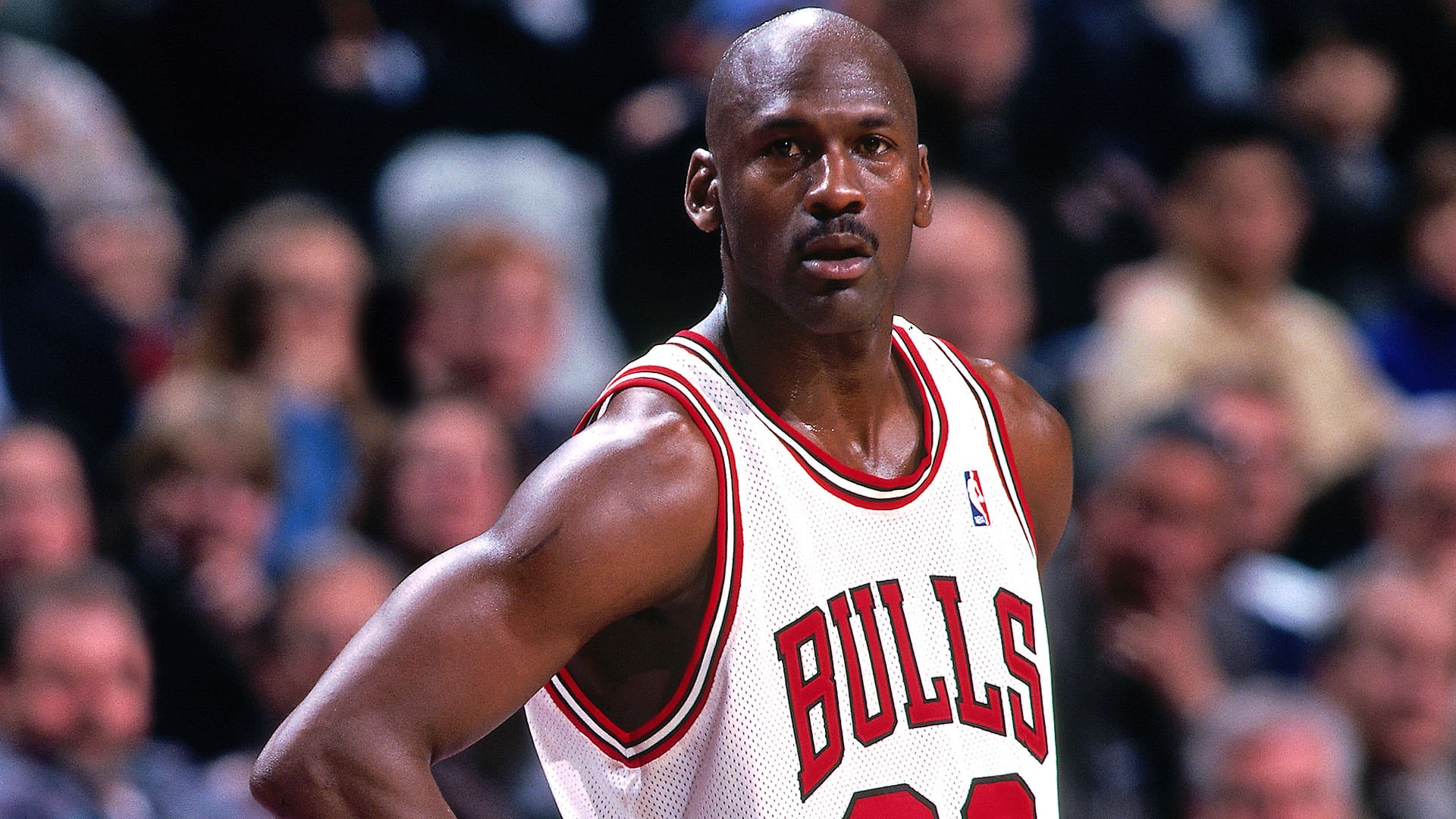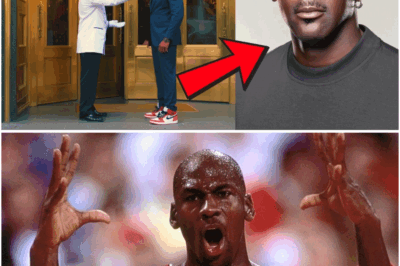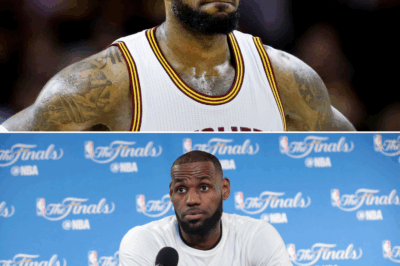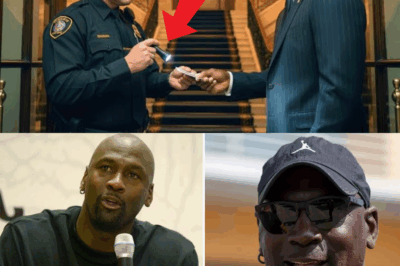Michael Jordan’s Story: A Personal Struggle Against Racism and Its Lasting Impact
Michael Jordan is a name that resonates far beyond the basketball court. He is widely regarded as the greatest basketball player of all time, a six-time NBA champion, and an icon whose influence has shaped sports, culture, and business for decades. But behind the legend lies a deeply personal story—one that speaks to the enduring problem of racism in America and the transformative power of confronting prejudice, both within society and within oneself.
Growing Up in the Shadow of Racism
Michael Jordan’s early years in Wilmington, North Carolina, were marked by the harsh realities of racism. In the 1960s and 70s, the civil rights movement was still fighting to dismantle the deeply entrenched systems of segregation and discrimination in the American South. Jordan’s hometown was no exception. The Ku Klux Klan, a white supremacist organization, had significant influence in the area, and their presence cast a long, menacing shadow over the lives of Black families.
In his biography, “Michael Jordan: The Life” by Roland Lazenby, Jordan opened up about the emotional scars left by growing up in such an environment. He spoke candidly about how the constant exposure to bigotry, ridicule, and injustice shaped his worldview. As a child, Jordan was subjected to racial slurs and unfair treatment by authority figures. He recounted being punished harshly whenever he tried to stand up for himself or push back against discrimination.
One particularly vivid memory involved a confrontation at school. Jordan was suspended for throwing a soda can at a girl who had attacked him with racial insults. He explained that, at the time, he was rebelling against the hatred directed at him, but it also led him to harbor resentment and even hatred toward white people as a defense mechanism. “I was really rebelling,” he admitted, “I considered myself a racist at that time.”

The Vicious Cycle of Racism
Jordan’s story is a powerful reminder of how racism perpetuates itself. Prejudice is not innate; it is learned and reinforced through repeated exposure to injustice and hostility. When children are subjected to discrimination, it can breed anger, mistrust, and, in some cases, reverse prejudice. Jordan’s admission of his own biases as a teenager is not an indictment of his character, but rather a testament to the insidious nature of racism and its ability to poison even the most resilient spirits.
This vicious cycle is not unique to Jordan’s experience. Across the globe, millions of children grow up in environments where racism is normalized, and the wounds inflicted by such experiences often last a lifetime. The anger and pain caused by exclusion, ridicule, and violence can manifest in many ways, from self-doubt to aggression, and even to the adoption of prejudices against others.
Breaking the Chains: Jordan’s Journey to Understanding
What sets Michael Jordan apart is his willingness to confront his own feelings and grow beyond them. As he matured, Jordan began to understand that hatred only begets more hatred. His experiences as a Black man in America gave him a unique perspective, but they also challenged him to rise above the bitterness that had once consumed him.
Jordan’s journey is emblematic of the broader struggle for racial reconciliation. It is not enough to simply condemn racism; true progress requires self-reflection and the courage to examine one’s own beliefs and behaviors. For Jordan, basketball became more than just a game—it was a vehicle for breaking down barriers, building bridges, and demonstrating the power of unity and teamwork.
On the court, Jordan played alongside teammates of all backgrounds. His leadership, work ethic, and relentless pursuit of excellence inspired those around him, regardless of race. Off the court, he used his platform to speak out against injustice and to support initiatives aimed at promoting equality and opportunity for all.

The Lingering Shadow of Racism
Despite the progress made since Jordan’s childhood, racism remains a persistent problem in the United States and around the world. The events of recent years—from the rise of the Black Lives Matter movement to ongoing debates about policing, education, and economic inequality—underscore the fact that the fight against racism is far from over.
Jordan himself has become more vocal about these issues in recent years. In 2020, following the killing of George Floyd, he released a statement condemning “ingrained racism” and pledging $100 million to organizations dedicated to promoting racial equality and social justice. His actions reflect a growing recognition among athletes and public figures that silence is no longer an option.
Inspiration Amid Struggle
Michael Jordan’s story is ultimately one of hope and inspiration. He overcame the obstacles of his youth to become not only a sports legend but also a symbol of resilience and transformation. His willingness to share his struggles with racism, both as a victim and as someone who wrestled with his own biases, offers valuable lessons for all of us.
Racism is a societal disease that affects everyone, regardless of background. It divides communities, stifles potential, and perpetuates cycles of pain and mistrust. But as Jordan’s life demonstrates, it is possible to break free from its grip. By acknowledging our own prejudices, challenging injustice wherever we see it, and striving to build a more inclusive world, we can honor the legacy of those who have fought—and continue to fight—for equality.
Conclusion
Michael Jordan’s journey from a young boy scarred by racism to a global icon is a testament to the power of perseverance and personal growth. His story reminds us that the battle against racism is both collective and deeply personal. It calls on each of us to confront the prejudices within ourselves and to work toward a future where everyone is judged not by the color of their skin, but by the content of their character. In sharing his story, Jordan has given us all a powerful example of how to rise above hate and become agents of change.
News
When Fame Isn’t Enough: Michael Jordan’s Experience Exposes Hidden Racism in Elite Spaces
Michael Jordan Denied Entry to Luxury Restaurant: A Stark Reminder of Racial Discrimination in Elite Spaces The sun was high…
Fame Can’t Shield Us: LeBron James and the Unyielding Reality of Racism in America
The Enduring Reality of Racism: LeBron James’ Personal Experience and Its Broader Meaning In a nation that prides itself on…
Asked to Show His ID at His Own Event, Michael Jordan’s Response Stuns the World
The Security Guard Who Changed Michael Jordan’s Life—and His Own On a bustling Friday night in Chicago, the Michael Jordan…
From Forgotten to Family: How a Marine’s K9 Saved More Than Lives
A Marine’s K9 Freezes at a Forgotten Suitcase — What They Found Inside Changed Everything The Arizona sun was already…
Trust Broken: German Shepherd Reveals the Truth About the Family Nanny
German Shepherd Attacks Nanny — The Shocking Truth Behind It Left the Parents Speechless! Most people see dogs as loyal…
The German Shepherd Refused to Leave the Drain… Until a Woman Discovered What Was Hidden Below!
The German Shepherd Who Wouldn’t Leave the Drain: A Story of Grief, Guardianship, and New Beginnings Rachel had just finished…
End of content
No more pages to load












